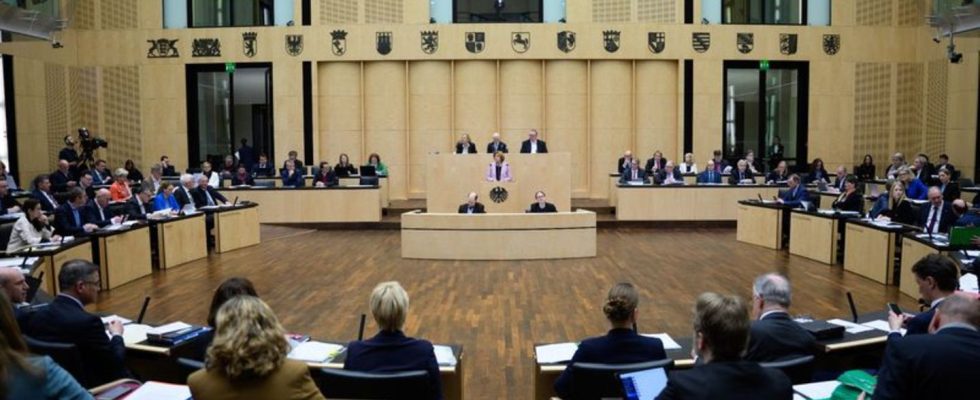Internet
Federal Council rejects new online access law
The required majority is missing: the new online access law fails in the Federal Council. photo
© Bernd von Jutrczenka/dpa
In a proposed law, the traffic light government wanted to improve coordination between the countries and set general standards. The idea surprisingly failed in the Federal Council.
The new Online Access Act (OZG 2.0) for more digital administrative services is in Federal Council failed. The draft law, which from the perspective of the traffic light coalition would have meant simplifications for citizens and companies, did not receive the required majority in the state chamber.
Federal Interior Minister Nancy Faeser (SPD), whose house is in charge of the project, said: “I will suggest to the cabinet that they call the mediation committee.” She is ready to continue negotiating constructively “because our country needs more digital progress.”
“It is very regrettable that the Union-led states in the Bundesrat did not agree to OZG 2.0 today,” she added. Faeser accused the Union-led countries of stopping the further digitalization and modernization of the state.
Law aims to improve coordination
The Union rejected the criticism. The parliamentary group’s digital policy spokesman, Reinhard Brandl (CSU), said: “Doing administrative digitalization bypassing the states will never lead to a successful result.” He accused the traffic light coalition of “ignorance of the federal order” and technical errors when drafting the law. The result is a standstill in digitalization, which is unfortunate for Germany.
The Parliamentary State Secretary in the Federal Ministry of the Interior, Johann Saathoff (SPD), unsuccessfully sought approval at the Bundesrat meeting with the argument that the law was an “important update to an outdated legal basis” and good news for companies.
The OZG 2.0 refers to federal administrations. But it should also have an impact on the federal states and municipalities. It stipulates that the federal and state governments will develop standards in a joint committee over the next two years that are binding for everyone involved. This is also intended to prevent administrations from developing software multiple times to solve the same problem.
According to the intention of the traffic light coalition, the infrastructure for a digital citizen account should not be offered multiple times, but rather concentrate on the central federal account (Federal ID). So far, individual federal states also offer digital citizen accounts.
“The fact that the states are rejecting the law in the Federal Council comes as a surprise and will further delay the digitalization of the administration,” said Green Party domestic politician Misbah Khan. “A far-reaching compromise” was already on the table in the form of a protocol declaration, which the countries have now refused. The MP criticized: “The people who will suffer first and foremost will be the citizens who long for a more modern administration.”

